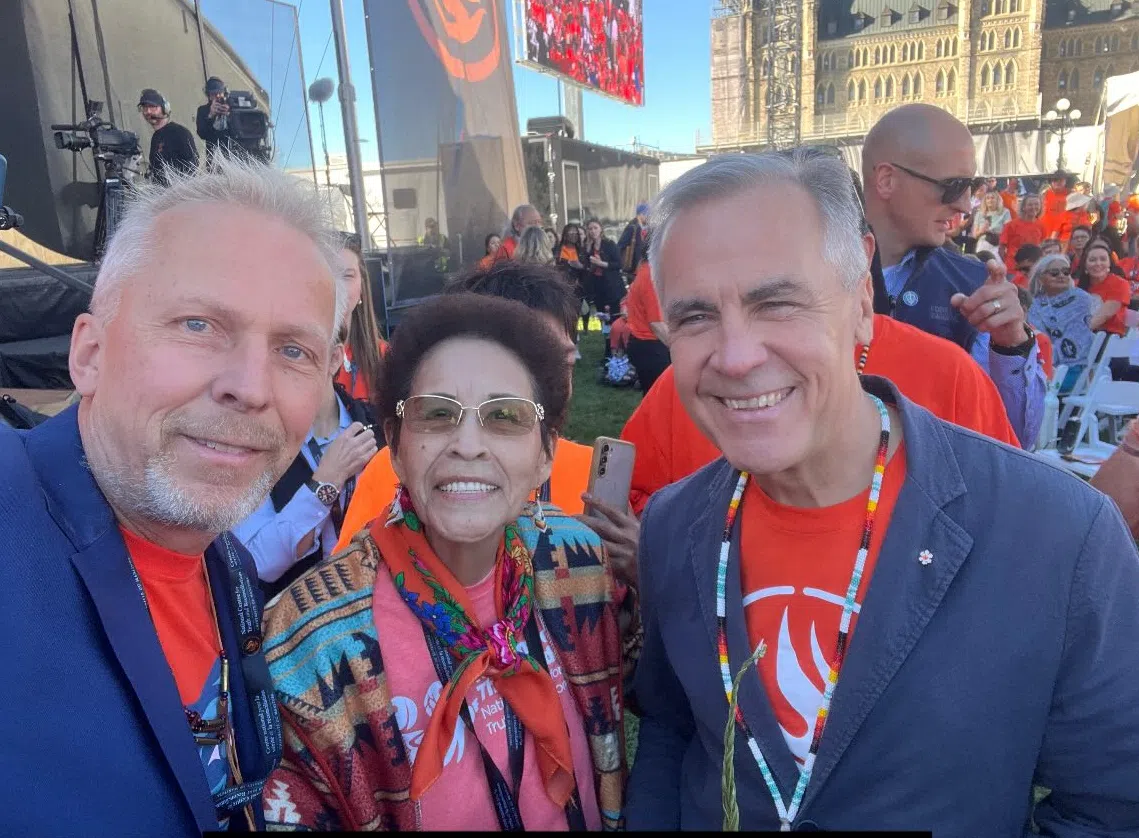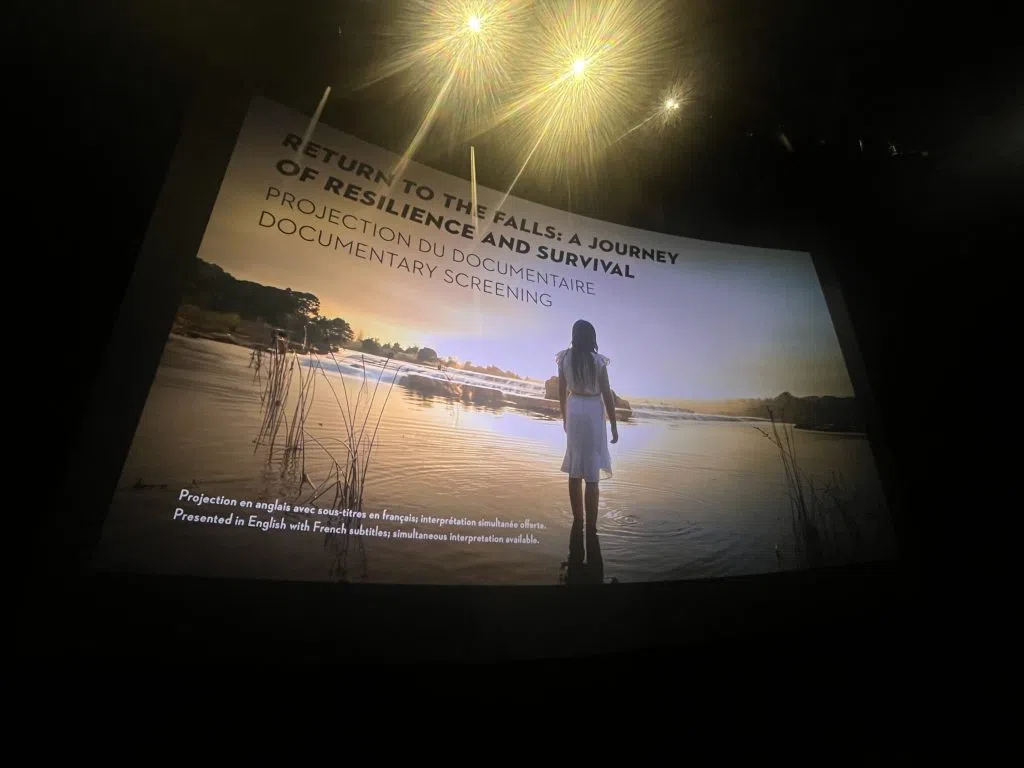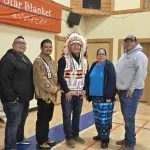
Return to the Falls
Elder Betty Ross believes truth holds the key to healing both a person and a country.
Her journey to share the truth started 13 years ago, when David A. Anderson captured her Indian Residential School story in his graphic novel Sugar Falls.
Last year, filmmaker Eppo Eerkes turned those 48-pages into a 63-minute docudrama aptly titled Return to Sugar Falls.
During the film Ross bears her soul in an intensely personal way in hopes of resonating deeply with audiences.
“It’s most profound when my team and I travel and are in the presence of others,” Ross said during her recent stop in Saskatoon. “To be there with [the audience], to see and hear them, hug them and shake their hands. They are so very grateful for the truth and the stories. I think it touches them very deeply.”
Return to the Falls is Ross’s harrowing story of being abandoned, adopted, and kidnapped and taken to St. Joseph’s Residential School at Cross Lake, Man.
The film includes both present-day footage and reenactments of what it was like living in a residential school. It captures Ross’s struggle to survive as well as the strength she pulled from her traditional teachings.
“My father taught me to keep all these teachings because one day I’ll be given that power and that voice to go across the nation and tell the truth,” she said.
Since February Ross has been doing exactly that.
Through sponsorship from Westjet and Air North, Ross and the filmmakers are on a Canada-wide speaking and screening tour.
“I’m doing this because a lot of our people are still broken in the deep recesses of their being, so I want to help them believe in themselves,” she said.
Ross never set out to share her story on the big screen, but fate intervened.
Eerkes and his daughter Denai went on a camping trip in B.C. and during the trip they stumbled across a graphic novel at a cultural centre.
He purchased the book not knowing how it would impact them both personally and him professionally
That first night Denai couldn’t put the novel down and read it over and over again.
Intrigued by his daughter’s interest, Eerkes decided to take a look at it.
“I read it that night and wept,” he said. “It was so good, horrible but amazing and beautiful at the same time.”
Eerkes immediately realized its potential to become an important and accessible tool to teach younger audiences about the truths of residential school.

He tracked down Ross, who was working in a hospital in Manitoba at the time.
“She said right away, ‘Eppo, I’ve been waiting for your phone call.’ ” said Eerkes.
After the initial conversation he began working on a screenplay.
“I knew right away that there was something powerful we could tap into – how they survived [and] where they got their resiliency,” said Eerkes.
Initially he considered doing a feature film before deciding a documentary style would be the best way to tell the story. It was completed in 2024 and February they began taking it across the country.
“It doesn’t matter if we screen it in front of 500 people or 5,” said Eerkes. “If it affected one person, then we made a difference.”
As part of the tour Ross visits schools and speaks with audiences about her story.
Eerkes hopes the documentary becomes a mandatory piece of education across Canada. He and a team from seven different First Nations have created a teaching guide to go with the film.
“We want to leave that legacy behind – that we all have our own Sugar Falls that we can go to for peace and healing,” said Eerkes.
For Ross, the experience has been about helping others by sharing her healing journey.
“I learned I have to love Betty first. And I have to forgive those systems for what they did to me, that’s the only way I can move forward,” she said. “My father taught me that – to build that foundation of truth because that’s the only way we can move forward.”

